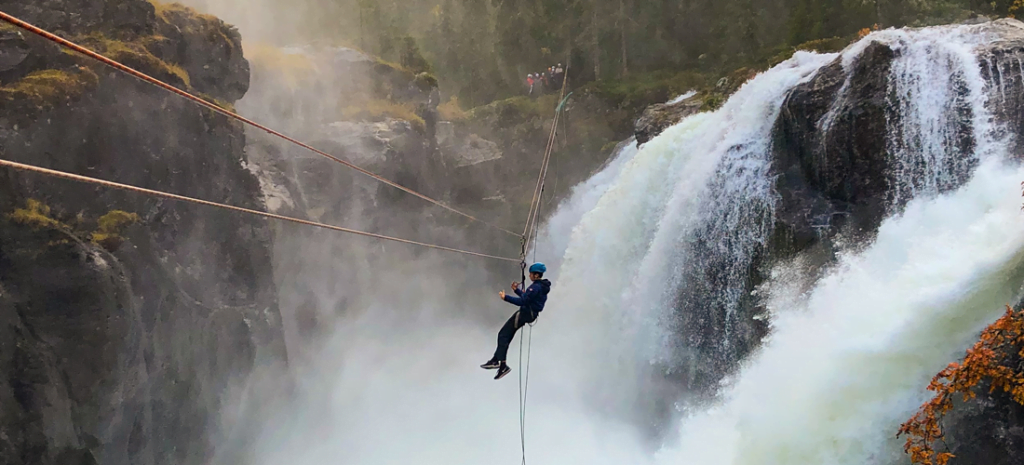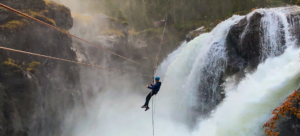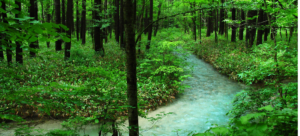The practice of ecotherapy has been gaining traction in recent years. Ecotherapy encourages us to take time away from our busy lives – whether that’s an hour or a week – and spend it alone in the great outdoors. By spending time alone in nature, we can gain insight into our own thoughts and feelings while also taking advantage of its restorative powers. In this blog post, we will explore why solitude is essential for effective ecotherapy and how it can benefit both your physical health and mental well-being.
Benefits of Ecotherapy and Solitude
Ecotherapy is a way to combine traditional mental health treatment with the healing power of nature. It can help you feel better mentally, emotionally, and physically. You can also learn more about how important nature is to our overall well-being and peace. The therapeutic benefits of ecotherapy are numerous and include:
1. Stress Reduction
Spending time in nature can help you feel less stressed and relaxed, so that your overall well-being is better.
2. Emotional Healing
You can explore nature to help you heal from trauma or emotional difficulties. It’s a safe and nurturing place for your emotions.
3. Enhanced Mental Health
You can reduce symptoms of anxiety and depression, improve your mood, and boost your self-esteem with ecotherapy.
4. Increased Resilience
Immersing yourself in nature can help build your emotional strength, giving you the ability to manage life’s struggles and surprises.
5. Mindfulness and Present-Moment Awareness
You can use nature to cultivate mindfulness and be aware of the present moment. This can help you stay focused and clear-minded.
6. Physical Health Benefits
You can improve your immune system, lower your blood pressure and reduce stress-related illnesses by being in nature.
7. Connection and Interconnectedness
You can feel connected to nature by doing ecotherapy. It will help you appreciate our planet and how we can help keep it safe in the future.
8. Personal Growth and Self-Discovery
When you experience ecotherapy, it can help you to gain insights about yourself, reflect on your personal journey and have a better understanding of your role in the environment.
9. Eco-Conscious Behavior
You can be more environmentally responsible by trying ecotherapy. It will help you develop eco-conscious practices and become a better steward of the environment.
What is Ecotherapy?
Ecotherapy, also known as nature therapy or green therapy, is a powerful and restorative practice for improving mental, physical, and emotional wellbeing. It’s based on the idea that by engaging with the natural world and spending time in outdoor environments we can positively transform our lives. By recognizing our deep connection to the natural world, ecotherapy acknowledges that humans are an integral part of nature and our wellbeing is intertwined with the health of the environment.
This holistic approach to mental health goes beyond traditional therapeutic models to recognize the healing power of nature. Through activities such as hiking, gardening, or simply spending time outdoors, we can experience a renewed sense of connection with ourselves and the natural environment – a sense of peace that can only come from being in nature. Ecotherapy offers an opportunity to tap into the healing power of the natural world, while also promoting environmental stewardship and appreciation for all life on earth.
Types of Ecotherapy
Ecotherapy is a way to use nature to help you feel better. It comes in different forms that work for different people. You can have an eco-therapist guide you, or do it on your own. Pick the one that works best for you and connect with nature for healing benefits.
1. Nature Walks and Hiking Therapy
You can go on a guided or self-guided nature walk or hike. You’ll be able to observe the environment and really take in the sights, sounds, and smells of nature. This type of activity encourages mindfulness and a connection with your natural surroundings.
2. Wilderness Therapy
You can find personal growth and self-discovery through outdoor programs or trips. You’ll have challenges and work with a group in nature.
3. Horticultural Therapy
Gardening and being around plants can help you feel relaxed and happy, and provides you with a sense of accomplishment. It is good for your physical, emotional and mental health.
4. Animal-Assisted Therapy
You get to interact with animals like horses, dogs, and other animals in a natural or outdoor environment. Animal-assisted therapy can help you feel better emotionally, help you feel more confident about yourself, and help you learn how to socialize better.
5. Wilderness Immersion Therapy
You can immerse yourself in nature for a long time and practice mindfulness, meditation, and self-reflection. Spend your time living simply surrounded by the beauty of nature and allow yourself to benefit from the solitude and introspection it provides.
6. Adventure Therapy
You can try outdoor activities like rock climbing, kayaking, or ropes courses to help you grow and become more resilient. It’s a great way to challenge yourself!
7. Eco-Art Therapy
You can use art-making with natural materials or themes to help express yourself, be creative, and heal. Making art outside can help you feel closer to nature and give you a sense of accomplishment.
8. Green Exercise Therapy
You can combine the benefits of physical activity and nature’s healing effects with activities like yoga, tai chi or outdoor fitness classes. Green exercise helps you get in shape while enjoying the outdoors.
9. Nature-Based Mindfulness and Meditation
You can integrate mindfulness and meditation with nature experiences. This could be forest bathing, meditating outdoors, or walking around mindfully in the woods.
10. Green Gardening Programs
You can get involved in community-based gardening projects or therapeutic gardens that help you to socialize, develop new skills and boost your emotional well-being through gardening activities.
11. Environmental Conservation Therapy
You can connect with nature by joining environmental conservation efforts. This will give you a sense of purpose and help you to do your part in protecting the planet.
Enhancing Experiences with Ecotherapy and Solitude
Ecotherapy is a powerful therapeutic practice that utilizes the healing power of nature. To take it to the next level, practitioners can also incorporate the art of solitude—the intentional and mindful practice of being alone in reflective contemplation—into the experience. Far from loneliness, solitude is an opportunity for self-discovery; when practiced in the context of ecotherapy, it enables individuals to go deeper into their inner selves and forge a stronger and more meaningful connection with nature.
In solitude, we gain access to our true selves—unaffected by external influences and expectations—and open up to the therapeutic gifts that nature has to offer. Through this practice, we can deepen our appreciation for the environment and begin to understand how our personal wellbeing is intertwined with the health of the planet. In this way, solitude becomes a catalyst that amplifies the healing benefits of ecotherapy, allowing us to discover ourselves and create new possibilities for growth and transformation.
By taking the time to be alone in nature, we can gain greater insight into who we are and what we need to thrive. This practice invites us to open our hearts and minds, hear the whispers of nature, and use it as a guide on our journey towards healing. In solitude, we can tune into the wisdom of the Earth and be soothed by its unconditional embrace.
Final Thoughts
It is clear that ecotherapy and solitude can work together in a powerful symbiotic relationship. Through the practice of both, we are able to gain insight into our lives and learn more about ourselves while also developing an appreciation for nature. Doing so not only helps us grow mentally but emotionally as well.
While it may seem difficult at first, taking time out from your daily life to spend some quality alone time outdoors will be worth the effort once you start reaping its rewards. So if you’re looking for a way to improve yourself or just need some peace and quiet away from all the hustle and bustle of everyday life, consider practicing ecotherapy through solitary retreats!















